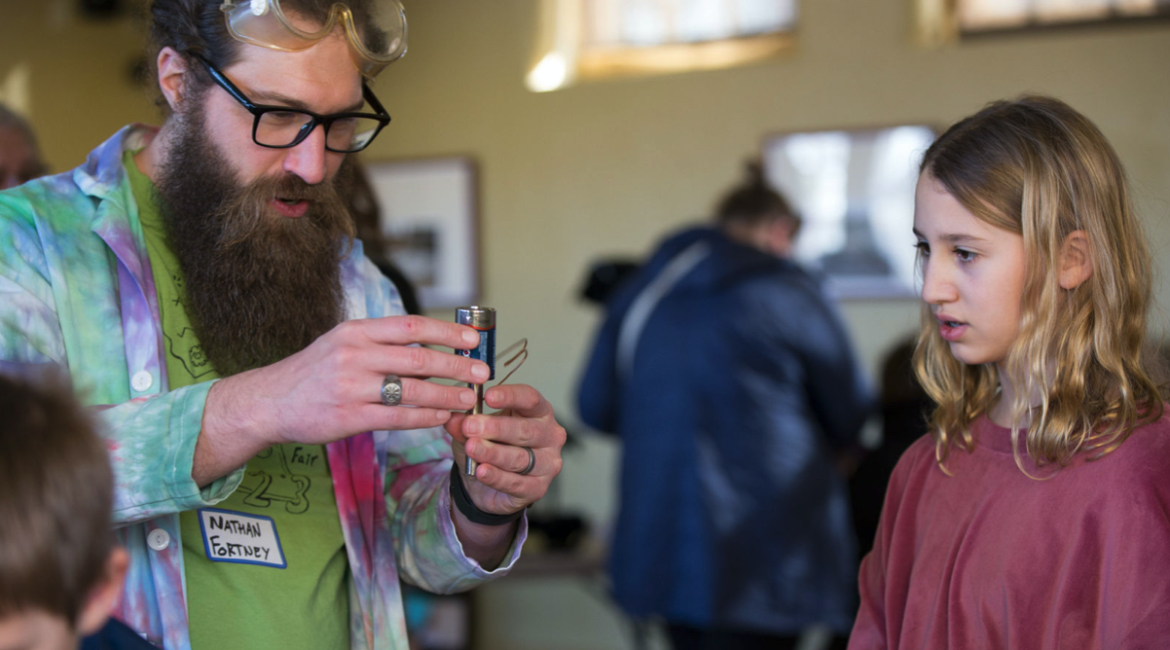By Chris Spangler
Winners in the 2023 Fort Atkinson Regional Science Fair have been announced.
The 33rd annual event, which took place Sunday, Feb. 26, at the Fort Atkinson Club, featured 59 entries by students in grades K-12.
The science fair was open to all students who live in or attend school in the school districts of Johnson Creek, Lake Mills, Jefferson, Fort Atkinson, Cambridge, Milton, Palmyra-Eagle, and Whitewater.
Division winners named Sunday include:
Kindergarten-First Grade: Jordi O’Neill, “Nut Race,” first grade, Lincoln Elementary School, Whitewater, first place; Corbin Schneider, “Burmese Pythons in Florida,” first grade, Purdy Elementary School, Fort Atkinson, second place; Max Fortney, “Will it Compost?,” kindergarten, Barrie Elementary School, Fort Atkinson, tied for third place; Joseph Stoddard, “Dirty Water That Got Filtered,” Lincoln, tied for third place.
Second-Third Grade: Charles Fortney, “Paper Planes,” third grade, Barrie, first place; Aubree Wojtkunski, “Guinea Pig Treats,” third grade, Lincoln, second place; Adler Schneider, “Mentos and Soda Fountains,” third grade, Purdy, third place.
Fourth-Fifth Grade: Brock Broadhead, “The Project Down Sip Street,” fifth grade, Purdy, first place; Sarah Webster, “Acid Attack,” fourth grade, Rockwell Elementary School, Fort Atkinson, second place; Erin Jean Vosburgh, “Frozen Foods,” fourth grade, Barrie, third place.
Sixth-Eighth Grade: Emily Mallin, “Lactose vs. Lactose Drops,” seventh grade, Fort Atkinson Middle School, first place; Claire Yin, “Reaction Time,” seventh grade, St. Joseph Catholic School, Fort Atkinson; Whitney May, “Science is Cool,” eighth grade, St. Joseph, third place; Kylie Block, “Shake It Up,” eighth grade, St. Joseph, fourth place; Samuel Murphy, “Freezing Point Depression (Ice, Ice Baby),” eighth grade, St. Joseph, fifth place; and Mariyah Esparza, “What Will Make Ice Melt Faster?,” eighth grade, St. Joseph, sixth place.
There were no high school entries.
All science fair participants received a limited-edition T-shirt designed by Chloe Barganz, a ninth-grade student at Lakeside Lutheran High School in Lake Mills. Ribbons, medals and money also were presented in five grade-level divisions, with first-place projects earning a $100 credit for the student’s science teacher to spend on science materials.
For nearly a decade, the Friends of Rose Lake organization has awarded a special prize to a student whose project considers the ecology of Dorothy Carnes County Park or other important scientific inquiry. Tom Belzer presented a pair of high-quality Vortex Optics binoculars to Corbin Schneider, a first-grade student at Purdy Elementary School. Corbin’s project was titled “Burmese Pythons in the Everglades: An Invasive Species.”
“Fortunately, there are no Burmese pythons in Rose Lake or the rest of Carnes Park, but invasive species are a complicated problem in ecology and definitely do affect Carnes Park,” said science fair board member Cynthia Ficenec.
A $100 prize also went to the school with the greatest number of students participating. That was St. Joseph Catholic School.
During the afternoon events, attendees were able to view entries, as well as brief, fun science videos. In addition, scientists and conservationists were on hand to present information and activities related to water quality monitoring, the ecosystems of Dorothy Caries County Park, bat roost monitoring, the habitat and populations of monarch butterflies and physics and chemistry.
Students who visited with guest scientists received a “science passport” marked to enter a drawing for a Celestron digital microscope donated by Nasco Education. Mina Scheibel was the winner. She is is in second grader at Barrie Elementary School.
All projects earning placement within a division are on exhibit in the Jones Gallery of the Dwight Foster Public Library in Fort Atkinson through March 11.
“With past fairs, we always wished for more time for public viewing of projects. The library director, Eric Robinson, has granted our wish,” Ficenek said. “Students whose projects won place awards were invited to display their projects in the Jones Gallery, upstairs in the Dwight Foster Public Library.
“The projects are there now through Saturday, March 11. It’s like a mini-science fair. I hope lots of people will stop by to see the range of projects from kindergarten to eighth grade,” she added.
Meanwhile, Sunday marked a return to an in-person science fair following a two-year virtual fair during the COVID-19 pandemic. During the award presentation, science fair officials announced that engineering projects will be accepted for the 2024 fair.
“Engineering projects are a little bit different, so they need to be considered differently by judges,” Ficenec explained. “We will be adding a judging score sheet that will allow engineering projects a fair chance to be compared with traditional science projects. With the popularity of STEM and specifically engineering, we think this change will encourage more students to participate.”
She noted that in a traditional science fair project, the student creates a hypothesis — a prediction of what will happen — and designs an experiment to test the hypothesis. He or she analyzes the results and decides whether the data supports the hypothesis or not.
“With an engineering project, instead of testing a hypothesis, you set out to create or improve a product of some sort,” Ficenec said. “You state what you want it to be able to do, and you design, build, test, and then tinker, rework and improve it. Hopefully, you get it to work. If not, you can still learn from how and why it failed, and then maybe adjust your goal. Maybe you were too ambitious and you realize, for example, that you can’t create a perpetual motion machine that generates free electricity, but you do learn how to increase energy efficiency.”
Judging the 2023 science fair were: Lori Trimble, Michael Hendrix, Miles Hagen, Nathaly Cormier, Paul House, Robyn Pohlod, Rocio Duchesne, Steve Anderson, Susan Devries, Andrea Romero, Alex Sindorf, Baocheng Han, Brian O’Neill, Chris Veldkamp, Connor Hodgson, Crystal Nata, Durga Kutal, Jake Minx, Jessica Kienbaum, Kim Naber, Kirsten Crossgrove, Kris Curran, Lauryn Swanson and Lina Han.
Science fair donors included: Generac; the Merrion Family Foundation, in honor of Richard Wanie; Fort HealthCare; W.D. Hoard and Sons Co.; Nasco Education; Ball Corporation: and Brindle Ink. Additional support was provided by: Badger Basement Systems, Fort Atkinson Hometown Pharmacy, Fort Community Credit Union, the Friends of Rose Lake, JM Carpets, Phil and Linda Niemeyer, PremierBank, Spacesaver, Steven Sahyun and W&A Distribution Services.
Members of the Fort Atkinson Science Fair Board of Directors are: Steven Anderson, Jessica Bonjour, Cynthia Ficenec, Nathan Fortney, Paul Hable, Jordan Nelson and Steven Sahyun.
For more information about the Fort Atkinson Regional Science Fair, visit: FAScienceFair.org.
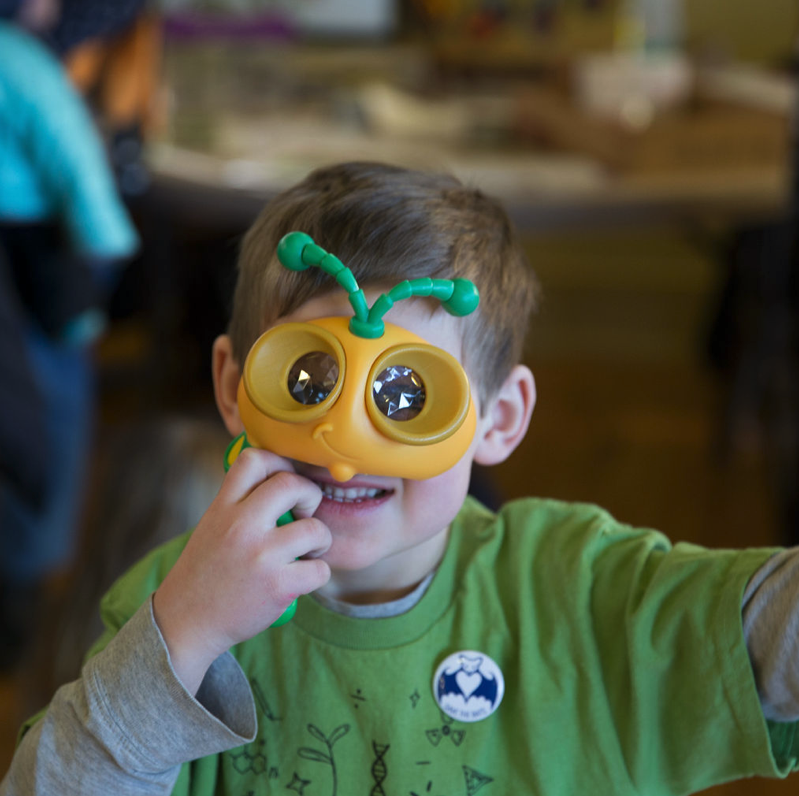
Barrie Elementary School, Fort Atkinson, kindergarten student Max Fortney looks through glasses which allow him to see the world as a monarch butterfly might.
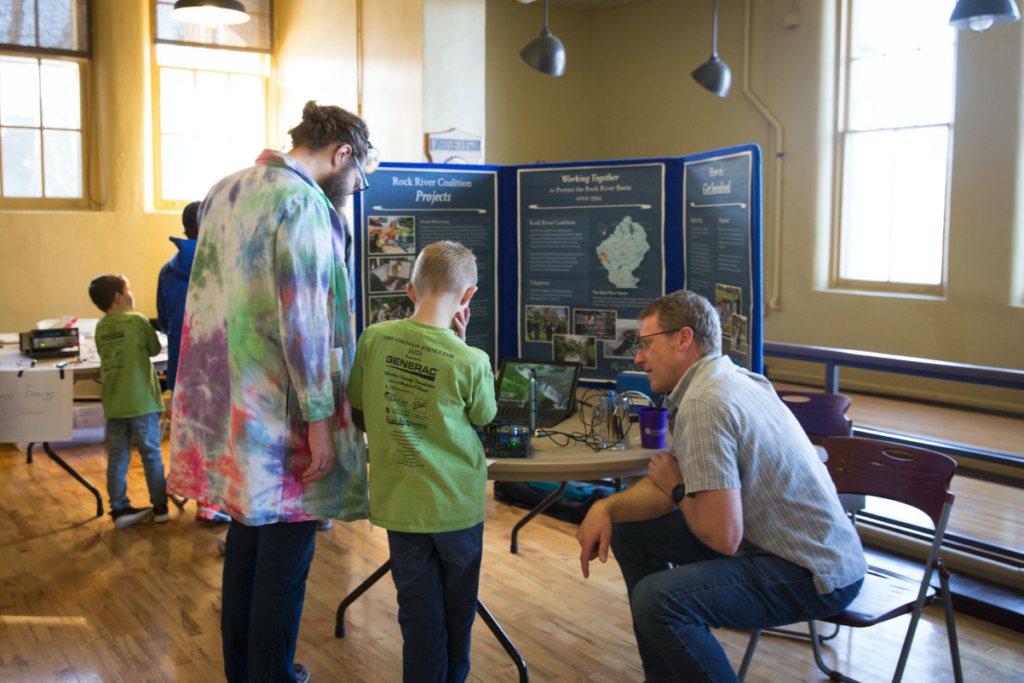
Dr. Eric Compas, professor of geography at the University of Wisconsin-Whitewater, at right, offers a water quality monitoring demonstration to attendees. Compas works with the Rock River Coalition.
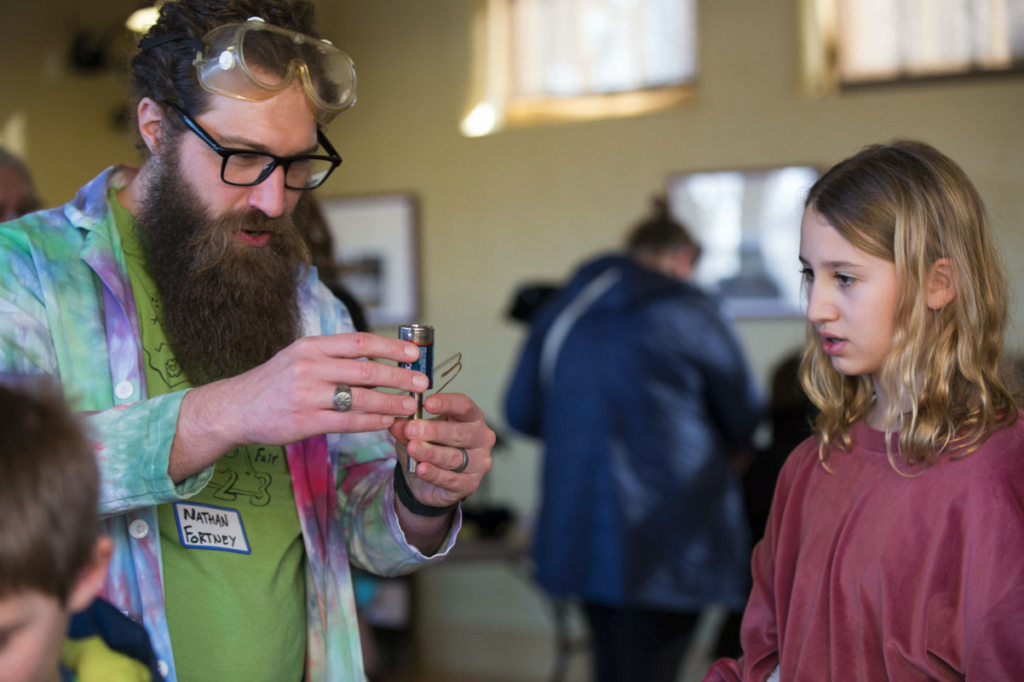
Dr. Nathan Fortney, at left, a member of the science fair’s board of directors, demonstrates an experiment for students.
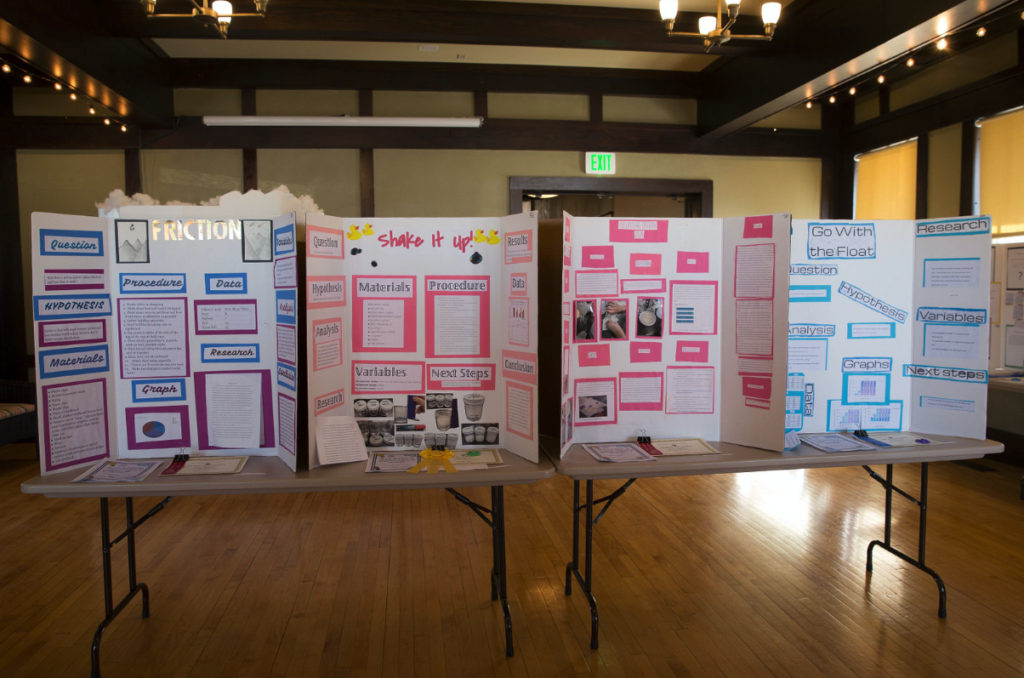
Projects in the sixth- to eighth-grade division are on display at the Fort Atkinson Club Community Center. A majority of projects within the division were submitted by students at St. Joseph Catholic School in Fort Atkinson, according to fair organizers.
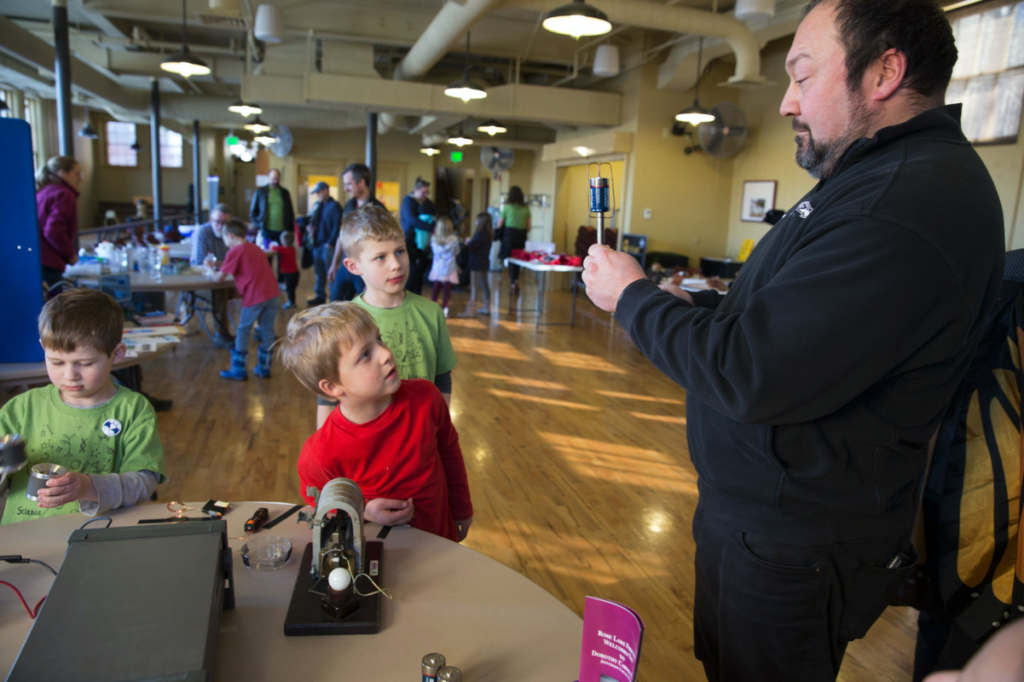
Dr. Ozgur Yavuzcetin, associate professor of physics at the University of Wisconsin-Whitewater, intrigues students with his electronics demonstrations.
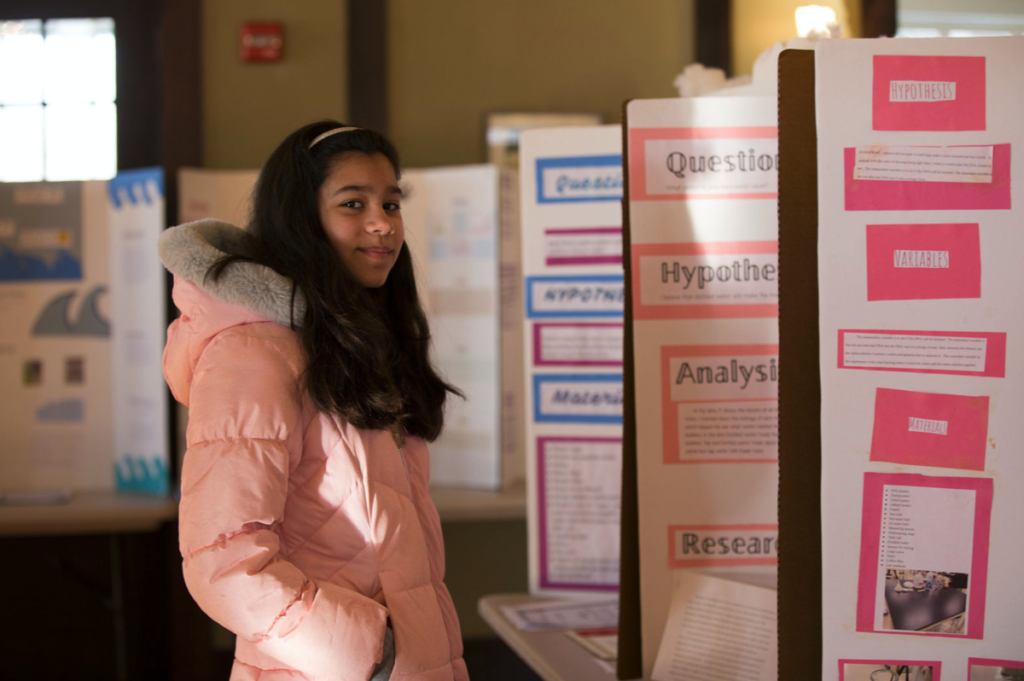
Sarah Webster, a fourth-grade student at Rockwell Elementary School, Fort Atkinson, views projects.
Photos courtesy of Lori Compas.
This post has already been read 3200 times!
